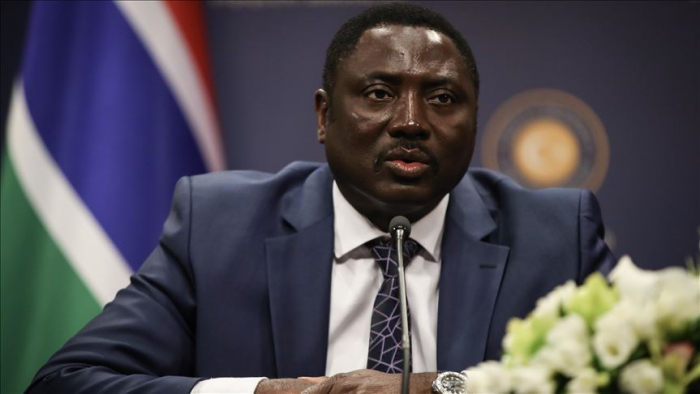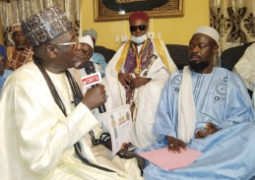
He made these remarks while delivering his keynote address at a virtual conference of the Dakar Blue Talk, themed: “Bridging the gap to the Atlantic Centre.”
“The rise of radical Islam in the Sahel, communal rebellions and transnational organised crime networks, crime in the maritime space of the Gulf of Guinea is the second emerging threat on the African continent,” he observed.
Minister Tangara said the international community is beginning to realise the repercussions of crime on the development of the region and the impacts on the African and global economy.
“After the adoption of Resolution 2039 of 29 February 2012, which gives our actions their full legitimacy, and the Political Declaration of the Heads of State and Governments of Central and West Africa on Maritime Safety and Security in the Gulf of Guinea, I urge our Governments to show the same firmness in the Gulf of Guinea as that shown in the Gulf of Aden, where the presence of international naval forces has made it possible to drastically reduce acts of maritime piracy. We urgently need to take action and move towards the development of a robust regional strategy to combat insecurity in collaboration with the regional communities ECOWAS and CECCEA which should be the spearhead, the Gulf of Guinea Commission and international partners.
“The Gambia is delighted to be part of this strategy, especially as Senegal's concern is the same as its own. I would like to assure you once again of His Excellency Adama Barrow's determination to support all the actions and to take on board all the recommendations that will emerge from this meeting, because it is a question of committing our governments once again to the reform of the security sector, where the maritime threat is a priority.
“Under the high authority of His Excellency Adama Barrow, the Government of the Republic of The Gambia, through me, intends to support all the actions undertaken so far by ECOWAS, ECCAS, the African Union and all the international partners for the elaboration of a regional strategy to fight piracy, armed robbery, illicit activities and smuggling committed at sea. I dare to hope that today's meeting will bring bold and adequate solutions to this thorny problem of insecurity in the Gulf of Guinea.
“In the space of two decades, the Gulf of Guinea has become one of the most dangerous maritime zones in the world. A real regional scourge, this growing insecurity threatens the trade and stability of the riparian countries. This will hinder the development of this strategic economic zone and all our port cities. We must take our responsibilities and go beyond declarations of intent.
“The Gulf of Guinea is a hub of international trade with all its fishing and mining resources as well as large hydrocarbon deposits. This makes it a major area of geostrategic interest. The oil capacity in the Gulf of Guinea alone exceeds the total production of the Persian Gulf nations, not to mention the refined products that escape official distribution channels.
“That said, security in this area deserves our attention. The security deficit in this area is reaching dangerous proportions if we are not careful. The rapid increase in acts of piracy, banditry and illicit trafficking has taken several countries in the region by surprise.
“The fight against this insecurity requires concerted action and strong measures to attack these plunderers of our countries and economies. We cannot remain inert or abandon this space to the power of lawless individuals or organisations whose aim is to turn it into a place of predation.”





